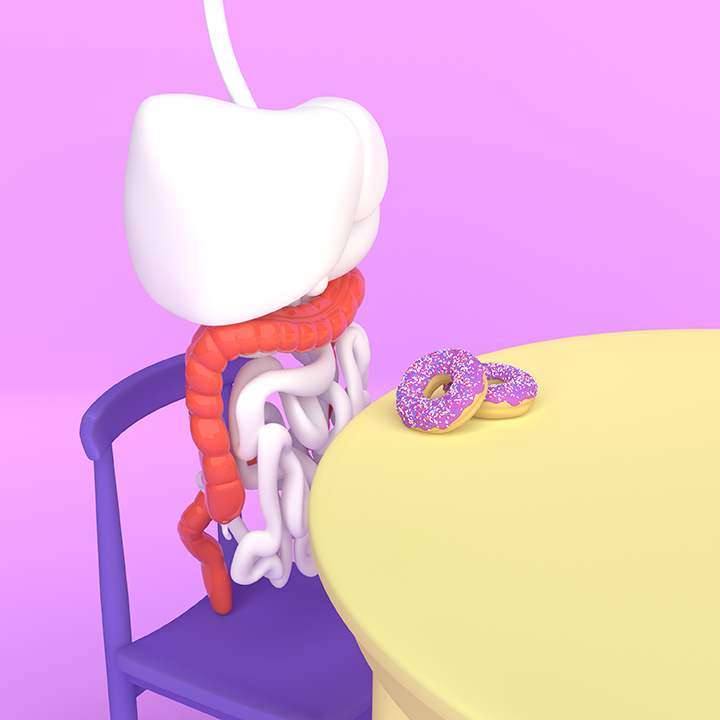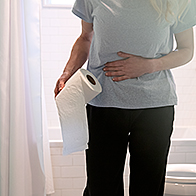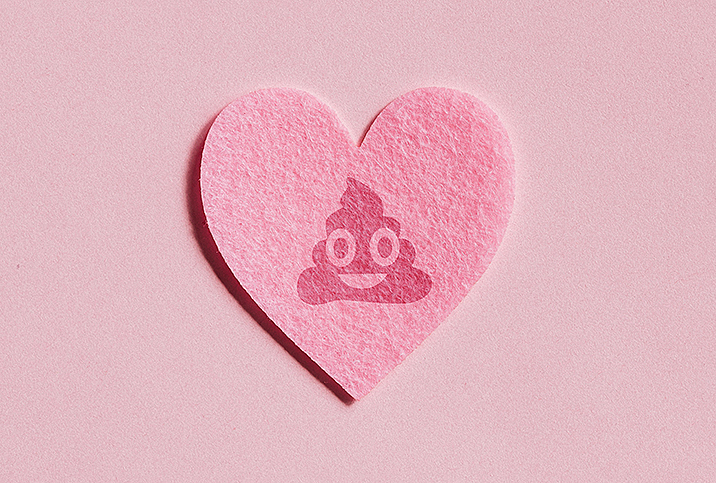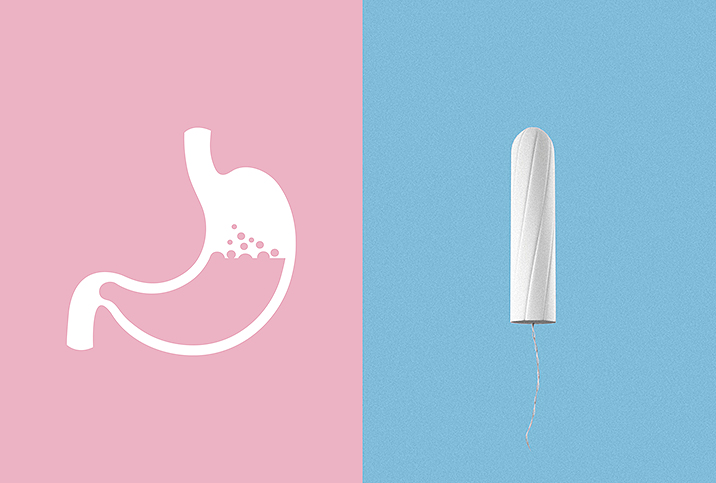A Dating Guide for People With IBS
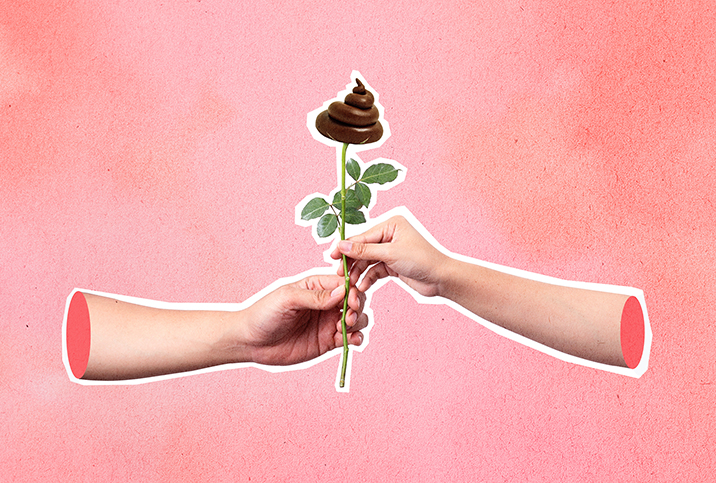
My first public IBS flare-up occurred on a date with a prospective partner. Within 30 minutes of our meeting, I was sequestered in a toilet hoping they wouldn't question the time I was taking or the accompanying groans my stomach was emitting.
The opening scenes of dating are meant to be filled with awkward silences, uncomfortable moments and tentative explorations. My bowel explosion, for lack of a better term, turned this casual date into a cringe-worthy anecdote.
I live with irritable bowel syndrome (IBS) and inflammatory bowel disease (IBD). These conditions nearly convinced me that romance was off-limits. But even when they get a little messy, they are not capable of ousting anyone from the dating world.
What are IBS and IBD?
"Irritable bowel is a functional disorder of the gastrointestinal tract characterized by flare-ups of chronic abdominal pain and altered bowel habits of diarrhea and constipation," said Harvey Allen Jr., M.D., a gastroenterologist at Digestive Disease Medicine of Central New York and director of GI at St. Luke's and St. Elizabeth hospitals. "It is usually diagnosed by symptoms lasting one day per week over a three-month period."
IBS is often confused with IBD, and vice versa, because of similar presentations but they are, in fact, different. IBS is a disorder of the gastrointestinal tract with symptoms varying from mild to disabling. IBD is characterized by the inflammation or destruction of the bowel wall.
IBS affects approximately 10 percent to 15 percent of adults in the United States, according to the American College of Gastroenterology, and is more likely to affect women. Symptoms are often triggered during times of emotional stress.
The term IBD is largely used to describe two conditions: ulcerative colitis and Crohn's disease. They are both long-term conditions that inflame the gut, but ulcerative colitis affects only the colon (large intestine).
Securing treatment for either condition is crucial, and if a person presents with any "warning sign" symptoms, including rectal bleeding, weight loss and nocturnal diarrhea, they should consult a doctor as soon as possible.
Dating complications
While living with my conditions without a clear diagnosis, the joy of dating became stained with desperate runs to the toilet, a constantly changing diet and regular bouts of extreme pain. Even with the most sensitive dates, I was consumed by a fear of grossing people out with too much bowel information.
"Feeling embarrassed isn't problematic on its own but when it leads to an unhelpful cycle of shame and avoidance, mental health can certainly suffer," explained Natalie Fraize, a licensed mental health counselor in Buffalo, New York, who specializes in chronic illness and the connection between physical and mental health. "Similar to dating, you may have either had an experience or fear of having an experience where your symptoms worsen during intimacy. This concern may lead you to avoid sex, and the more we avoid something, the worse our fear gets."
Thus, battling first-date nerves can trigger an IBS flare-up.
Just to complicate matters, bowel disorders and stress are irrevocably linked. Thus, battling first-date nerves can trigger an IBS flare-up. The more nervous I get, the higher the chance of getting stuck in a public bathroom for the duration of a date.
Even once I'm past the first-date jitters and venturing into a romantic or sexual relationship, my illnesses may interrupt encounters in the bedroom. Sometimes I am too bloated to even consider sex, and at other times, the symptoms affect my pelvic floor function.
"Personally, I find humor to be a great tool if you're uncomfortable with having these conversations," Fraize advised. "We all poop, and even if we don't have IBD, we've all had some unfortunate experience with needing to go at an inopportune time. Most people will be understanding and empathetic when you share your story. The hardest part will be starting the conversation."
Navigating dating with bowel issues
Dating while having chronic bowel illnesses requires considering what I've eaten, being equipped to deal with an IBS flare-up with an arsenal of aids and always knowing the location of the nearest toilet.
Despite plenty of complications, navigating the dating scene with a rebellious bowel is possible. Firstly, recognizing your triggers, such as specific foods, activities or stressful environments, to minimize the chance of a flare-up can help you ease back into romance without inflicting harm.
"If food is a trigger for your symptoms, on the first date choose an activity such as meeting in a coffee shop, going bowling or Putt-Putt golf, something that is interactive but does not exacerbate your symptoms," Allen said. "Do things that minimize your symptoms prior to your date, such as taking your medication, meditation or talking to a friend who can help you stay calm."
If you have had bad luck in the dating department, take some time out to rebuild your confidence.
"Practice having compassion for yourself," Fraize said. "Try to understand why you're struggling and what expectations you have or pressure you're putting on yourself. Talk to yourself as you would someone you love."
Finding an understanding partner can also alleviate the stress in your romantic life. Everyone deserves to be loved with compassion and understanding; impatience and judgment have no place in a functioning relationship or on carefree dates.
"Research shows that negative emotions such as anger, anxiety and depression can exacerbate irritable bowel symptoms," Allen noted. "Choosing a supportive person is a must."
Seeking support
Many health conditions are still shrouded in mystery and shame, so seeking support, especially when dating someone new, can be taxing. Although transparency is ultimately the only way forward, knowing how and when to share your experiences is important.
"The experience of chronic illness can feel out of control, but this is your chance to get your power back," Fraize said. "You get to determine how you tell your story. While open and honest communication in a relationship is important, it is your decision when and what you want to share."
If you are still wary of sharing the condition as your dates evolve into a relationship, remember that a prosperous long-term relationship cannot exist without mutual support. Finding a compassionate partner is the smoothest path to romantic fulfillment with a chronic illness.
IBS maintains a strong grip on my life, however, even the strongest IBS flare-up can't remove romance from my life—and the same goes for everyone with IBS or IBD. With a little stigma-shattering toilet humor, dating can transform from a hellish landscape to a heavenly one.







